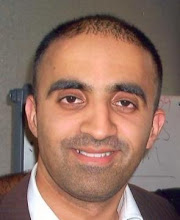This is below all the media outlets I have been quoted in over the past day about the UK Government's attempts to introduce Stop and Question
(Reuters, UK, World News Australia, National Post, Canada, Gulf Daily News, Bahrain, Manawatu Standard, New Zealand, The Nelson Mail, New Zealand, Waikato Times, New Zealand, The Age, Australia, The Timaru Herald, New Zealand, Marlborough Express, New Zealand, The Dominion Post, New Zealand, Auckland stuff.co.nz, New Zealand, Reuters India, India, Sydney Morning Herald, Australia, The Age, Australia, Reuters AlertNet, UK, ABC Online, Australia, Brisbane Times, Australia, The West Australian, Australia, Malaysia Star, Malaysia, Melbourne Herald Sun, Australia, NEWS.com.au, Australia, The Australian, Australia, Stuff.co.nz, New Zealand, Sunday Times.au, Australia, Courier Mail, Australia, Daily Telegraph, Australia, Advertiser Adelaide, Australia, Javno.hr, Croatia, Yahoo News, UK, EU Politics Today, Brussels )
(Reuters, UK, World News Australia, National Post, Canada, Gulf Daily News, Bahrain, Manawatu Standard, New Zealand, The Nelson Mail, New Zealand, Waikato Times, New Zealand, The Age, Australia, The Timaru Herald, New Zealand, Marlborough Express, New Zealand, The Dominion Post, New Zealand, Auckland stuff.co.nz, New Zealand, Reuters India, India, Sydney Morning Herald, Australia, The Age, Australia, Reuters AlertNet, UK, ABC Online, Australia, Brisbane Times, Australia, The West Australian, Australia, Malaysia Star, Malaysia, Melbourne Herald Sun, Australia, NEWS.com.au, Australia, The Australian, Australia, Stuff.co.nz, New Zealand, Sunday Times.au, Australia, Courier Mail, Australia, Daily Telegraph, Australia, Advertiser Adelaide, Australia, Javno.hr, Croatia, Yahoo News, UK, EU Politics Today, Brussels )
Mohammed Shafiq, spokesman for the Ramadhan Foundation, a Muslim youth organisation set up to counter extremists, voiced concern it would be mainly minority communities that
would be stopped and questioned under the proposed new powers.
"We feel that the government's proposals are going to alienate the Muslim community further," he told Reuters.
would be stopped and questioned under the proposed new powers.
"We feel that the government's proposals are going to alienate the Muslim community further," he told Reuters.




